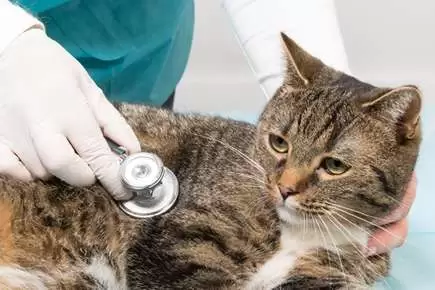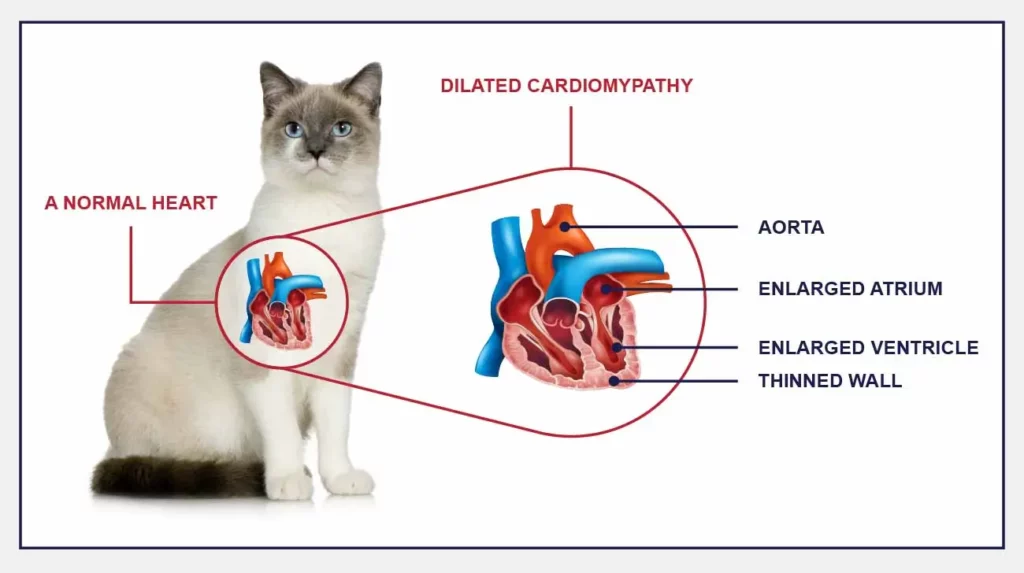


Cats, beloved companions to many, are susceptible to various health conditions, and heart disease is one of them. Heart disease in cats, often referred to as feline disease, encompasses a range of cardiac disorders that can significantly impact a cat’s quality of life. Understanding the causes, symptoms, diagnosis, and treatment options for disease in cats is crucial for providing proper care and support to these furry friends.

Several factors can contribute to the development of heart disease in cats. While some of these causes might be genetic, others can result from underlying health conditions. Common causes include:
This is the most common form of disease in cats, characterized by the thickening of the heart muscles, especially the left ventricle. HCM can be genetic, affecting certain breeds more frequently, such as Maine Coon and Ragdoll cats.
This condition involves the enlargement of the heart chambers, leading to weakened contractions. DCM can be related to taurine deficiency, which is particularly a concern for cats fed homemade diets lacking in essential nutrients.
In this rare condition, the heart muscles become less flexible, impairing the heart’s ability to relax and fill with blood properly.
Just like in humans, cats can develop valvular diseases, where the heart valves fail to function correctly, leading to blood flow abnormalities.
Some cats are born with structural heart abnormalities that can lead to disease later in life.
Detecting disease in cats can be challenging, as they are known to hide signs of illness. However, vigilant cat owners may notice the following symptoms:
Rapid or labored breathing, often accompanied by open-mouth breathing.
Cats with disease may develop a persistent cough, which can worsen over time.
A decrease in activity levels and overall energy.
Cats might appear weak or unwilling to engage in regular activities.
Unexplained weight loss despite a normal appetite.
Cats with severe disease might faint due to inadequate blood flow.
If you suspect your cat has heart disease, it’s imperative to consult a veterinarian. The diagnosis typically involves a combination of the following:
The vet will listen to the cat’s heart and lungs and may detect abnormalities.
These imaging techniques allow for a detailed assessment of the heart’s structure and function.
Blood work can help rule out other potential causes of the cat’s symptoms.
This measures the electrical activity of the heart and can identify irregularities.
While heart disease in cats can’t always be fully cured, several treatment strategies can improve a cat’s quality of life:
Vet-prescribed medications like diuretics, ACE inhibitors, and beta-blockers can manage symptoms and slow the disease’s progression.
Cats with heart disease might benefit from specialized diets that support heart health.
Minimizing stress and providing a calm environment can help reduce the strain on a cat’s heart.
Cats with heart disease require regular monitoring and veterinary visits to adjust treatment as needed.
Heart disease in cats is a serious health concern that requires prompt attention and care. Recognizing the potential causes, being aware of the subtle symptoms, and seeking professional veterinary help can make a significant difference in managing the disease and ensuring a better quality of life for these cherished feline companions.